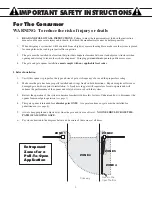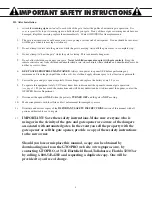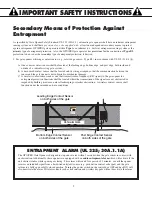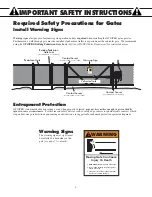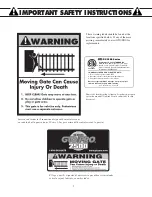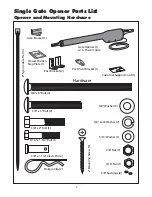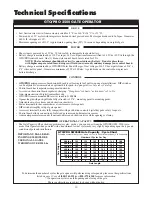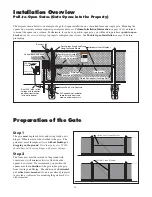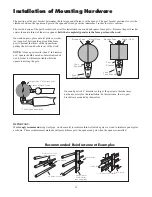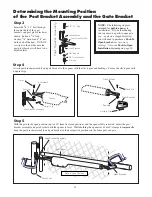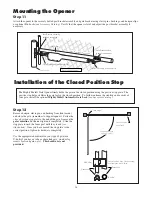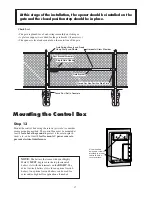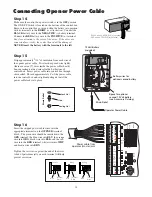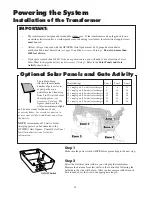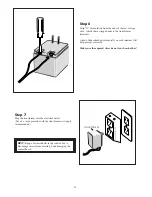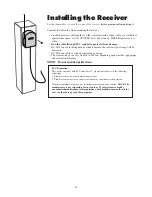
11
Preparation of the Gate
Step 1
The gate
must
be plumb, level, and swing freely on its
hinges. Wheels must not be attached to the gate. The
gate must move throughout its arc
without binding or
dragging on the ground
.
Note that gates over 250 lb.
should have ball bearing hinges with grease fittings.
Step 2
The fence post must be secured in the ground with
concrete so it will minimize twist or flex when the
opener is activated. We recommend you position the
opener near the
centerline
of the gate to keep the gate
from twisting and flexing. The addition of a
horizontal
or vertical cross member
(if one is not already in place)
to provide a stable area for mounting the gate bracket is
also important.
Installation Overview
Pull-to-Open Gates (Gate Opens into the Property)
The diagram shown below is an example of a pull-to-open installation on a chain link fence and single gate. Mounting the
opener on a masonry column requires special procedures;
see
Column Installation Information
on page 36
if you intend
to mount the opener on a column. Furthermore, if you have a push-to-open gate, you will need to purchase a
push-to-open
bracket
(see
Accessory Catalog
) to properly configure your system. See
Push to Open Installation
on page 30
before
proceeding.
Horizontal Cross Member
Vertical Cross Member
Horizontal Cross Member
Gate Swings Evenly and Freely
Hung Firmly and Plumb
Receiver
Post Bracket Assembly
Control Box with Battery
Gate Bracket
Single Gate Opener
Fence Post Set in Concrete
Run 1000' (max.) of low
voltage wire to control
box from transformer
(wire not included).
Power Cable
Closed Position Positive Stop Plate
120 Volt indoor
Transformer
(surge protector
not supplied)
PVC conduit (not included)
to protect wire from lawn
mowers and weed eaters.
Warning Sign






